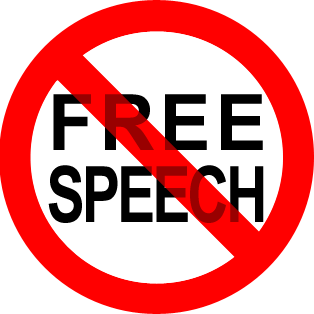Among 178 states Eritrea is at the very bottom of the world ranking for the fourth year running. At least 30 journalists and four media contributors are held incommunicado in the most appalling conditions, without right to a trial and without any information emerging about their situation.
Journalists employed by the state media – the only kind of media tolerated –  have to choose between obeying the information ministry’s orders or trying to flee the country. The foreign media are not welcome.
have to choose between obeying the information ministry’s orders or trying to flee the country. The foreign media are not welcome.
Legend:
Black – very serious situation
Red – difficult situation
Yellow – Noticeable problems
White – good situation
In Somalia (161st), the media are not being spared by the civil war between the transitional government and Islamist militias, and journalists often fall victim to the violence. The two leading Islamist militias, Al-Shabaab and Hizb-Al-Islam, are gradually seizing control of independent radio stations and using them to broadcast their religious and political propaganda.
Sudan and Rwanda follow Eritrea
The temporary lifting of prior censorship on the print media in Sudan (172nd) was just a smokescreen. It has fallen 24 places and now has Africa’s second worst ranking, partly as a result of the closure of the opposition daily Rai-al-Shaab and the jailing of five members of its staff, but above all because of the return of state surveillance of the print media, which makes it impossible to cover key stories such as the future referendum on South Sudan’s independence.
Rwanda (169th), where President Paul Kagame was returned to power in a highly questionable election, has fallen 12 places and now has Africa’s third worst ranking.
The six-month suspension of leading independent publications, the climate of terror surrounding the presidential election and Umuvugizi deputy editor Jean-Léonard Rugambage’s murder in Kigali were the reasons for this fall. Journalists are fleeing the country because of the repression, in an exodus almost on the scale of Somalia’s.
Surveillance of the press and a decline in the climate for journalists during the May elections account for Ethiopia’s continued bad ranking (139th). Violence against journalists, arbitrary police arrests and intelligence agency abuses explain why Nigeria (145th) and the Democratic Republic of Congo (148th) are still in the bottom third.
Uganda fell by 10 places
Uganda (96th) fell a relatively modest 10 places but the murders of two journalists in separate incidents in September and the recent increase in physical attacks and arrests of journalists are fuelling serious concerns about the climate for the media in t he run-up to next year’s elections.
he run-up to next year’s elections.
After two difficult years, Kenya (70th) has recovered a respectable position.
The relative positions of the African countries in the top 50 have also changed. They are now led by Namibia (21st), which has recovered its former pre-eminent position, while Cape Verde (26th) has caught up with Ghana (26th) and Mali (26th).
South Africa (38th) has fallen five places, in part because of attacks on journalists during the Football World Cup but above all because of the behaviour of senior members of the ruling African National Congress towards the press. ANC Youth League leader Julius Malema, for example, expelled BBC correspondent Jonah Fisher from a news conference on 8 April, calling him a “bastard” and “bloody agent.” And the government plans to create a media tribunal and to pass a bill restricting the disclosure of information. Both projects would endanger press freedom.
Criticism
For Africa, the Reporters Without Borders’ (Reporters Sans Frontières, RSF) listing “cannot be taken seriously,” the Afrol.com News editor holds, adding that “methods are totally flawed.”
South Africa is only fifth on the list of African countries when it comes to press freedom, according to RSF’s 2010 index, falling significantly behind Namibia, Cape Verde, Ghana and Mali.
According to Afrol.com, the claim is absurd. In no other African country does one find such a vibrant and ample press environment as in South Africa, able to attack government from any angle. Even racist white supremacist groups are publishing their propaganda in South Africa, and gay magazines are openly available – unthinkable in any other African state.
Media ow nership in South Africa is widespread, with even poorer societies being increasingly empowered to voice their concerns in public. Also state media are reporting critically about government. Contemporary and historic abuse by the powerful ones is discussed openly in all channels, including a controversial new media bill.
nership in South Africa is widespread, with even poorer societies being increasingly empowered to voice their concerns in public. Also state media are reporting critically about government. Contemporary and historic abuse by the powerful ones is discussed openly in all channels, including a controversial new media bill.
Namibia, Cape Verde, Ghana and Mali have developed into countries where the environment for press freedom is surprisingly good. But they can of course not reach up to South African standards.
In the cases of Namibia and Cape Verde, it is a question of critical mass as only very small national populations are there to uphold media diversity.
Ghana and Mali indeed have developed into beautifully flowering media landscapes during the many years of democracy and progressive government. Ghanaian media, although not as powerful and all-inclusive as their South African counterparts, may be reaching a critical mass to hold the powerful one’s accountable and create public debate.
HRH Bergen, based on Reporters Without Borders and Afrol.com information. See the original articles here and here.
Related links:
Eritrea – no freedom of expression
Somali journalist killed in Mogadishu fighting


